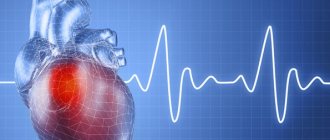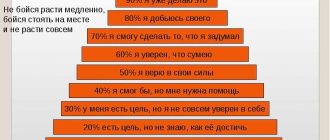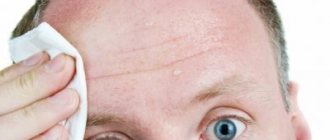If your heart hurts after stress, this may indicate the appearance of functional psychogenic angina, developing on a nervous basis. Pain in the heart after stress differs little from classical organic angina, which is one of the manifestations of coronary heart disease (coronary heart disease). These two cardiac diseases can be distinguished only after a thorough examination and observation of the patient during the unfolding attack, when the heart hurts from stress.
How to understand that the heart hurts precisely from stress (the difference between psychogenic and organic angina)?
Most often, the heart hurts from stress in middle-aged girls and women. Usually, heart pain does not occur suddenly, but gradually increases, sometimes intensifying, sometimes weakening. They can bother you for several hours and sometimes days.
Research has shown that those with a thin build are most affected.
At the same time, patients cannot relieve discomfort in the heart area with the help of nitro drugs. This is the characteristic feature by which functional angina can be distinguished from its organic form.
A sign indicating that this is psychogenic angina is also the persistence of heart pain after suffering stress.
That is, the patient’s condition does not improve after rest and sleep, but also does not worsen with physical activity, which would be expected in the case of classic angina.
With age, attacks do not become more severe, and the disease does not worsen. Against the background of depression, anxious thoughts, and insomnia, symptoms become more pronounced. In half of the patients, heart pain after stress does not require treatment at all and goes away on its own, and there are no subsequent relapses.
Causes of heart pain due to nerves
The human nervous system and his heart are closely interconnected. Depending on the activation of one or another part of this system, the myocardium changes the pace of work. Thus, the sympathetic department increases the frequency and force of heartbeats, and the parasympathetic department reduces these indicators.
Since stress reactions involve the activation of the sympathetic part of the nervous system, a person notices the following symptoms during intense experiences:
- rapid breathing, shortness of breath, and if there are concomitant pathologies of the lungs, then also a severe cough;
- feeling of dry mouth, increased viscosity of saliva;
- increased blood pressure;
- sweaty palms;
- "goose bumps";
- palpitations - the heart beats faster and stronger, it may seem as if it will “jump out of the chest.”
Many patients feel pressing pain, complain that they have a tightness in the area of the heart, they are suffocating, they do not have enough air when inhaling, or they simply have difficulty breathing. And also, often such patients’ hands tremble and their pupils dilate. This is called psychogenic cardialgia.
Separately, it is necessary to highlight autonomic somatoform dysfunction of the cardiovascular system. This is a condition in which standard reactions of the sympathetic department of the autonomic nervous system develop, but due to the peculiarities of the personality’s psychotype, they are perceived by the person more acutely. Groundless symptoms arise, and the patient suffers from panic attacks. At a doctor’s appointment, the patient points out a number of sensations that are standard for a malfunction of the cardiovascular system, but the research results do not reveal it. In such cases, the doctor talks about possible VSD, and sometimes refers you to a psychotherapist. Fortunately, well-chosen sedatives help the patient cope with the exacerbation of the perception of psychosomatic symptoms by the end of the first week of therapy.
Somatoform dysfunction of the cardiovascular system is also called cardioneurosis.
The peculiarity of this condition is the metaphorical nature of the description of sensations by the patient, a bright emotional coloring - the heart is “burning with fire”, “covered with ice”, “squeezed in a vice”, “frozen”, the chest seems to be pulled together with a tight corset, it takes your breath away, and often there is a lump in the throat .
Such a perception of pain near the heart during a period of strong experiences, nervous shocks and stress really indicates the psychological characteristics of a person, but does not exclude the development of life-threatening conditions.
If a patient is often nervous or restless, this affects the heart and, as a natural result, hypertension may develop and the risk of myocardial infarction will increase. Therefore, you need to know how to distinguish a passing symptom, the body's normal reaction to stress, from the onset of a cardiac disease. The heart can suddenly get sick even from a banal fright. But, as a rule, this condition passes quickly and does not require medication.
Therefore, if during a period of stress a person’s heart hurts, then one can suspect:
- cardioneurosis;
- hypertension;
- VSD;
- angina pectoris.
Symptoms
After stress, specific heart pain is observed with the following symptoms:
- exhaustion;
- dyspnea;
- cardiopalmus;
- aching and nagging pain in the heart area;
- increased anxiety, accompanied by anxiety and a feeling of fear.
An attack of psychogenic angina usually develops against a strong emotional background. But it can also be caused by chronic stress. An ECG does not show any signs of pathology, except that there is a rapid heartbeat - tachycardia. After the cessation of the stress factor, the condition quickly normalizes on its own, and unpleasant symptoms disappear.
Typically, attacks occur in the same situations that cause nervous tension and stress for the body:
- for various phobias;
- tension in the family or work team;
- other similar situations.
During an attack, the patient exhibits physical and mental agitation. Therefore, when thinking about how to support the heart during stress, you can engage in relatively heavy physical activity and the attack will end. And if a person does not have difficult psychological moments, then he does not have attacks.
Causes of pain during stress
Medical experts identify two causes of heart pain due to nerves. The first of these is the spastic reactions of blood vessels. Nervous shock in this case affects the human sympathoadrenal system. Being in a state of excitement, this neurohumoral mechanism stimulates the rapid functioning of the sympathetic nervous system, as well as the functioning of the adrenal glands.
Such changes significantly affect the heart. Tachycardia develops, and the strength of heart contractions increases significantly.
Often, after severe stress, patients experience vascular spasms and hypertension.
Excessive stress can contribute to the occurrence of myocardial ischemia and many other diseases. Angina pectoris is often recorded. Such a reaction is common for nervous tension, especially when it comes to older people.
Development of stress neurosis
The second reason occurs against the background of psychogenic cardialgia. Many doctors call chest pain due to intense experiences cardioneurosis. Its cause is the special mental state of the patient. In this case, the cause of the heart attack is psychiatric pathology. People themselves can feel pain along with impulses from any other organs.
Diagnosis and treatment
When a person feels pain in the heart, he should immediately consult a doctor, who will refer him to the treatment room for an ECG. If the angina was psychogenic, then the cardiogram will not show significant deviations. You cannot refuse a visit to a cardiologist, since only he can clearly determine whether the patient has organic angina or psychogenic.
If psychogenic angina occurs, treatment is usually not required at all, since it does not pose a threat to the life and health of the patient and cannot lead, for example, to myocardial infarction. Her symptoms are most often mild, with long periods of remission. The attacks may not recur for months, and then disappear completely.
About the prevention of psychogenic angina
Most often, psychogenic angina is mild, the symptoms are mild, and disappear completely over time. By taking care of your health, a person can prevent the development of heart pain from stress; to do this, it is enough to learn to control your emotions.
You can’t accumulate everything in yourself; energy must find a way out. It is enough to get out into nature and shout to bring out all the negativity. It is important to create the right environment; the color green has a beneficial effect on the nervous system. Its presence in your home and office will relieve unnecessary stress.
The best anti-stress for the heart is physical activity, active recreation, walks in nature, hobbies and hobbies that bring satisfaction. helps restore the nervous system . And consuming foods containing serotonin, the hormone of joy, will improve your mood.
To reduce the effect of stress on the body, it is necessary to use natural remedies, you can use mild herbal preparations with a calming effect. If you can’t cope on your own, you should consult a psychotherapist.
Prevention
The smartest thing to think about is not how to strengthen the heart after stress, but how to avoid getting into a similar situation. The best prevention would be to identify the likely source of trauma to the psyche and try to avoid it whenever possible. You need to learn to cope with negative emotions without leading to heartache. Experts recommend the following things for this:
- It’s better to let the stress out like steam, for example, scream to your heart’s content.
- Increase the proportion of green color in the interior, which has the most beneficial effect on the state of the nervous system.
- Increase your consumption of seafood and bananas, which help saturate the body with serotonin, the “hormone of joy.”
- Nervous tension is well relieved by various hobbies, especially those related to sports and active recreation. Various eastern practices (Chinese gymnastics, qigong, yoga for the heart and blood vessels), as well as managing emotions, are very helpful in relieving tension.
If stress does occur and heart pain makes itself felt, then natural therapy based on herbal sedatives can be very useful. You can also address this problem to a psychotherapist, who will tell you how to cope with negative emotions, neutralize the pathogenic effects of stress and quickly eliminate unpleasant symptoms.
Did your heart hurt after stress? Did this alarm you? Tell us about your experiences in the comments - your experience can help others!
Why does my heart hurt from nerves?
Sometimes people have severe heart pain after nerves, stress and excitement. This phenomenon is often a sign of psychogenic angina, which manifests itself on a nervous basis, but other disorders also occur.
The condition is similar to attacks of real angina, which acts as a symptom of ischemia. Doctors distinguish a psychogenic disorder from an organic one based on the results of the examination.
If your heart hurts from nerves and stress, you cannot do nothing. Negative emotions lead to the active production of adrenaline, which increases heart rate and constricts blood vessels. Against this background, pressure increases and the load on the heart increases. In this regard, frequent stress contributes to pain.
If your heart hurts after an experience, the discomfort usually persists for a long time and does not go away even after rest or a night's sleep, but it is also not affected by physical activity. Attacks do not intensify with age and the disease has no exacerbations. With insomnia, the situation can worsen, and pain can also increase depression and anxious thoughts.
Features of pain
Heart pain manifests itself in different ways, depending on the clinical picture of neuroses. The patient may experience the following types of pain:
- Typical pain. Light, aching sensations, arrhythmia. They are localized in the upper part of the heart. There may be a piercing pain in the left arm or shoulder blade.
- Sympato - adrenaline. Characterized by the active action of stress hormones. There is a strong compression in the chest, a sharp aching pain. There are also signs of tachycardia. Treatable with sedatives.
- Vegetative protracted. Sharp, severe pain that has no precise localization. My whole chest hurts. Symptoms such as increased heart rate, muscle weakness or tremors, excessive sweating, and frequent urge to urinate may also occur. Removable with tranquilizers.
- Angiospastic. Brief and non-localized pain. Can be relieved with any sedative.
There is also another type of pain when it occurs when a person moves. Normal walking, swinging your arms, bending your body, etc. can also be caused by experiences. But most often, doctors look for the causes of this pathological condition in diseases of the intercostal muscles, as well as in disorders of the musculoskeletal system. Often such pain occurs from osteochondrosis.
No doctor will begin to treat his patient without knowing the underlying factors that influenced his pathological condition. Such measures will help eliminate organic disease from the extensive list of diseases that could lead a person to a heart attack and other problems with the cardiovascular system. The cause of the pathology can be determined by diagnostic tests such as:
Psychohygiene
Psychohygiene is a whole science that is aimed at achieving and maintaining human mental health.
Scientists identify several of the most important basic needs for a person, which ensure his harmonious psychological state:
- Love;
- experience of positive memories;
- feeling of security;
- self-respect and recognition of his personality from others;
- creative activity.
If the balance is disturbed in any of these areas, this will certainly affect a person’s mental health. This can be either a short-term phenomenon (stress, strong feelings) or a prolonged one, turning into depression and other disorders. The stronger the excitement, the greater the likelihood of pain in the chest area. Therefore, it is necessary to take preventive measures as soon as possible so that the body stops reacting so strongly to what is happening around.
General advice can be supplemented by reviewing life values, playing sports and creativity.
You should visit a cardiologist at least once a year, even if nothing bothers you. It is especially dangerous to skip routine examinations for people at risk: those suffering from alcoholism, tobacco addiction, those with concomitant chronic diseases, and those aged 40 years or more.
First aid measures
If an attack of pain in the heart develops after a nervous breakdown at night, or far from the clinic, you need to remember the first aid algorithm:
- lie down on a flat surface;
- remove clothes that restrict your neck and chest;
breathe slowly and measuredly;- try not to worry and eliminate irritating factors;
- measure blood pressure and pulse;
- take Corvalol and drink valerian tincture.
If the result does not work, then you need to call an ambulance. Delay can be dangerous, as there is a possibility of developing consequences due to prolonged disruption of hemodynamics.
If an attack of pain in the heart develops after a nervous breakdown at night, or far from the clinic, you need to remember the first aid algorithm:
Heart disease due to nerves
The main negative consequence is diseases of the cardiovascular system. But it cannot be said for sure that one factor will negatively affect the organ.
Nerve disorder leads to functional disorders of the internal organs of the whole body. Over time, neuroses can cause the heart muscle to weaken .
This can cause coronary artery disease or organ defects, hypertension, angina pectoris and other dangerous ailments.
Heart medications will not help in this case, since the discomfort is not localized in the organ itself.
Stress and heart disease: how the former provokes the latter
Everyone - doctors, scientists, and even patients - has recognized that emotional stress contributes to the development of cardiovascular diseases. However, as it turns out, stress is different from stress. This means that it can lead to a heart attack in different ways. Two ways.
The first way is when you are experiencing chronic emotional stress . Constant nervous tension is considered a predisposition to the development of atherosclerosis. And sooner or later it can lead to coronary heart disease (CHD), stroke and peripheral artery disease.
The second case is when a person experiences severe nervous shock, intense stress , for example, as a result of some sad or tragic event. Such stress develops rapidly, and the resulting acute heart attack can occur just as quickly.
And most importantly, the “stress-heart” problem is complicated by the fact that stress itself, in dosed amounts, is the norm of our lives and is even necessary for the human body: short-term and not strong, it mobilizes the body (for example, with a deadline at work) and with a successful resolution , despite the fatigue, leaves a pleasant feeling of satisfaction. Such mild stress does not cause exhaustion, which is why in the medical community it is also called beneficial.
But often, unfortunately, we have to deal with harmful stress that causes heart problems. Here are just a few examples of how they destroy our body and lead to a heart attack.
STRESS AND ATHEROSCLEROSIS
It has been proven that stress can accelerate the development of atherosclerosis. People who often react violently to life situations, experiencing a surge of adrenaline (usually manifested as frustration, anger or hostility), are those who, according to scientists, are in the greatest danger.
Even seemingly “standard” stress that we experience in everyday life can cause a temporary deterioration in the functioning of the entire cardiovascular system, a surge in hormonal changes and an increase in adrenaline in the blood.
STRESS AND CIRROVASCULAR SYSTEM
In addition, chronic emotional stress is often accompanied by an increase in other factors that increase the risk of cardiovascular disease indirectly rather than directly.
A striking example is smoking. Smokers tend to increase their tobacco consumption under stress. And many, under emotional stress, begin to overeat and, consequently, increase body weight and blood cholesterol levels.
Thus, chronic stress can affect blood vessels and contribute to poor overall heart health. And how we respond to stress directly affects the cardiovascular system.
STRESS AND ACUTE HEART FAILURE
Even “joyful stress,” that is, a happy moment or joyful event, sometimes causes a heart attack. For example, a New Year's party, the birth of a grandson, a successful interview, and even a visit to the opera with your family.
What can we say about sad events. The death of a loved one, divorce, job loss, business failure, exposure to natural (or man-made) disasters, or serious family conflicts are all associated with an increased risk of sudden heart attack.
Because at such moments there is a jump in blood pressure, the heart rate changes, vascular tone is disturbed and other physiological changes. As a result, the heart simply cannot stand it.
In addition, severe stress is also responsible for the dramatic phenomenon of “broken heart syndrome” or cardiomyopathy. This is the name of a disease when the heart muscle itself changes.
Both types of stress— short, rapid and long-term chronic —can trigger the development of heart disease, even to the point of crisis. Of course, it is unrealistic to avoid stress in life (and it is not necessary: as mentioned above, sometimes it is good for our body). But you need to learn to keep the situation under control. To do this, first of all, everyone who is exposed to stress must learn to cope with it before it begins to undermine their life.
“Stress management programs often consist of breathing exercises, stretching, aerobic exercise, visualization techniques, yoga and meditation. All of these programs are aimed at one goal - to blunt the adrenaline response, says researcher and specialist in the field of cardiology, MD. Richard Fogoros . “If you explore these options, you will definitely succeed!”
Doctors have named the month when people die most often from heart attacks. As it turns out, the most dangerous month for heart patients is December. Researchers have been trying to figure out why the risk is highest at this time. And we found several reasons for this (more)
It has been proven that stress can accelerate the development of atherosclerosis. People who often react violently to life situations, experiencing a surge of adrenaline (usually manifested as frustration, anger or hostility), are those who, according to scientists, are in the greatest danger.
Essential first aid
If a patient’s heart is constricted, the first step is to provide him with physical and emotional peace.
It will be very good if a person has the opportunity to lie down. This way the heart will require less oxygen and the attack will pass faster. If the patient’s clothes are tight, you need to make it easier for him to breathe by opening the collar of his shirt (dress) and loosening his belt.
The best medicine to alleviate and stop an attack of coronary artery disease is nitroglycerin (it is placed under the tongue). The sooner a person takes the drug, the faster the pain will go away. If you don’t have the necessary pills in your medicine cabinet, you can stop the attack in other ways.
Mustard in baths and compresses helps a lot with angina. Place mustard plasters in the area where pain is localized, this will help relieve a painful attack and improve the patient’s well-being. A hand bath will also work effectively: dilute 1 tbsp in 1 liter of hot water. l. dry mustard, dip the brushes into the mixture and hold them there for 5-10 minutes.
In our turbulent times, cardiac diseases are quite common, and therefore there are more and more people complaining of various pains in the heart every year. Pain can be of a different nature and indicate a wide variety of diseases.
You may feel heaviness in your chest, pulling or pressing pain. It can radiate to the left shoulder, arm or shoulder blade. Basically, pain occurs or intensifies as a result of physical activity, when walking quickly, during sports, or when your body is in an uncomfortable position.
Pain also occurs as a consequence of severe psycho-emotional experiences. In this case, it lasts longer than when it occurs during physical activity. Such pain is a fairly good reason for concern.
Since it is impossible to make a diagnosis on your own, you should remember that pain can indicate other cardiac diseases. To make an accurate diagnosis, you need to consult a specialist. In this case, this is a local physician who will perform an initial examination, prescribe a cardiogram, take general urine and blood tests, and, if necessary, write a referral for further consultation with a cardiologist or neurologist.
Compressive heart pain most often indicates the presence. This is a form of coronary heart disease. Its main reason lies in the occurrence of spasms of the coronary vessels when the body needs oxygen nutrition for the heart muscle. Therefore, patients suffering from angina pectoris feel squeezing pain in the heart area.
Causes of the disease:
— Most often, coronary heart diseases depend on increased. It is formed due to obesity and poor nutrition. Therefore, heart attacks occur three times more often in people who are overweight. To normalize blood cholesterol levels, it is enough to adjust your diet by eliminating harmful foods. With a decrease in cholesterol levels and normalization of weight, the risk of developing the disease and heart attack decreases.
5. If there is no medicine at hand, it can be replaced with mustard plasters. They need to be placed on the place where it hurts the most, either the chest or the back. A hot mustard hand bath will also relieve pain. To prepare it, you need to dilute one tablespoon of dry mustard in one liter of hot water. If there is no mustard or mustard plasters, a simple hot hand bath will also help relieve the pain. You can simply put your hands under running hot tap water.
To prevent angina pectoris and predict all kinds of pain, it is necessary to undergo regular examination by a doctor. Health status can change at any time depending on a person's life circumstances. You need to give up bad habits, move more, exercise, if possible, go to the gym. A prerequisite is the normalization of weight and diet. Fried, salted, pickled, smoked, and fatty foods should be excluded from food. Do not use mayonnaise, ketchup and other products that contain all kinds of dyes, preservatives, stabilizers, emulsifiers and other synthetic food additives.
Just recently, you began to experience unusual paroxysmal sensations in the heart area: you feel a heaviness behind the sternum, a pressing, pulling pain. Perhaps the pain radiates to the left shoulder blade, shoulder or left arm. Most likely, it intensifies with physical activity, but perhaps it bothers you even in normal conditions... All these are signs of a disease called angina pectoris, or, in other words, “angina pectoris.” This article is exactly what to do when your heart is compressed. What causes this? How to live further and is it possible to cure this disease?
Urgent Care
If an angina attack occurs for the first time and takes you by surprise, use the following tips. 1.
Calm down, don't panic.
Stop moving, sit down, or better yet, lie down. 2.
Unbutton your shirt collar, take off your belt, ask to open the window - you need fresh air.
3.
Breathe slowly and deeply through your nose, holding your breath as you inhale.
Try to breathe from your stomach, not from your chest. 4.
The drug you need is called “Nitroglycerin”.
Ask if someone around him accidentally ended up with him, urgently send someone to the pharmacy. (When your heart constricts for the first time, it is better to take half or a quarter of the tablet; the drug greatly lowers your blood pressure and can cause fainting). Important information! If the chest pain does not go away within a few minutes after taking nitroglycerin, call an ambulance immediately! Most likely, this is not just an attack of angina, but a myocardial infarction - a life-threatening condition! 5.
While you are waiting for an ambulance or medicine from the pharmacy, try making mustard plasters.
They are placed on the sternum area or to the left of it. You can also relieve pain with a mustard bath for your hands (1 tablespoon of powder per 1 liter of hot water). As a last resort, simply place your brushes in hot water for 5-7 minutes. 6.
There is no way to do even this, but your heart is still squeezing? Massage active points on your left hand. The first point is the last phalanx of the little finger. It needs to be squeezed firmly from the sides (near the nail). Feel free to even do it with your teeth. The second point is in the middle of the palm, between the middle and ring fingers (the fingers of the palm should be half bent). These simple methods are very effective in an emergency situation.











